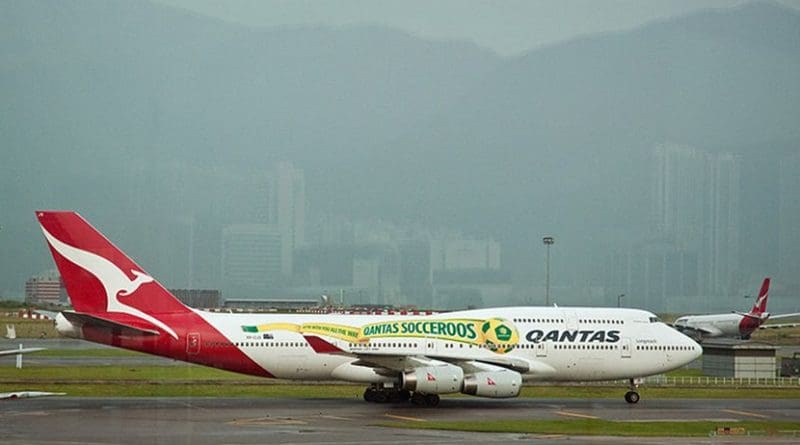Going Mad At Qantas: Industrial Relations Down Under – OpEd
Qantas is at war with its employees. The battle for supremacy over wages and operations of the Australian airline has moved to its penultimate phase: a grounding of the world fleet of 108 aircraft in 22 airports across the globe. 68,000 customers have been affected.
What is notable is how the reaction has been portrayed. ‘Qantas has grounded its entire worldwide fleet because of industrial action by its employees – stranding an estimated 13,000 people over the next 24 hours’ (Telegraph, Oct 29). The employees are the ones carrying the can here, when in truth, the decision of grounding a global fleet was taken at the behest of an aggressive executive which decided to commence an industrial blitzkrieg. Prior to that, we were merely witnessing a phoney war.
The result of the lockout is total, meaning that pilots who were not directly involved in the dispute are also affected. On Saturday night, Fair Work Australia, the national industrial tribunal that was rendered toothless by previous conservative governments, adjourned a hearing between the parties.
The Australian and International Pilots Association has questioned the sanity of the Qantas executive, Alan Joyce. ‘Alan Joyce is holding a knife to the nation’s throat’, suggested AIPA Vice President Richard Woodward. ‘No one predicted this – because no one thought Alan Joyce was completely mad.’ Woodward, as so many members of the union movement have done in the past, has demonstrated a certain naiveté over the commanders of capital. Capital can be innately destructive, even to its own accumulators.
The line taken by the unions for some months now has been one of attrition – strikes by baggage handlers, engineers and pilots figuring prominently. The union movement also called for the insertion of ‘job security’ clauses in work agreements in March this year. Joyce’s response was a strut to the tune of the market. ‘A lot of the unions are raising these job security claims which are, in essence, a veto on change and they are a veto on us being able to run a business and have flexibility’ (The Australian, Mar 26). The actions became even more substantial when Qantas announced its plans to move some of its operations offshore, a decision that could well result in the loss of 1,000 jobs.
The battleground is already bloody, with Qantas losing A$15m a week from the industrial dispute, which has already cost the airline A$68m. Its international operations have not been doing well, with annual losses totalling $A200m. But we live in an age of remorseless financial plunder. Joyce happily received a ballooning in his salary even as plans to shave off company costs were being hatched.
The Labor government is wondering whether it should intervene, and has commenced drafting an application to Fair Work Australia that will involve the termination of all industrial action at Qantas. In the words of the Australian minister for transport, Anthony Albanese, ‘This will be aimed at both actions by unions and by Qantas management’ (BBC News, Oct 29).
The airline’s record has been getting rusty. There have been several near misses that could have cost the airline’s faultless safety record dearly. Services have not been stratospherically brilliant, and the flexibility that Joyce and his pro-market henchmen crave is no guarantee of their quality. The greater use of subcontracting with the aim of cutting costs has shown that Qantas is more obsessed by the bottom line than the bottom service.
The results will be disastrous for an Australian tourist industry that is already flattened by a rampant Australian dollar. Getting to one of the more remote continents in the world is already a challenge, and the prospect of a dicky airline will hardly help. A stranded customer is one who will never provide custom again. But the broader tremors felt in the industry will go well beyond the tourist numbers.
When it comes to the actual mechanics of industrial policy in the airline industry, the action by the Qantas executive has been ruthless. Should it win unconditionally as the planes get back into the sky, the financial bogeymen that have done so much to discredit capitalism will feel reassured in their delusions. The world of the substandard airline may well be upon us.

